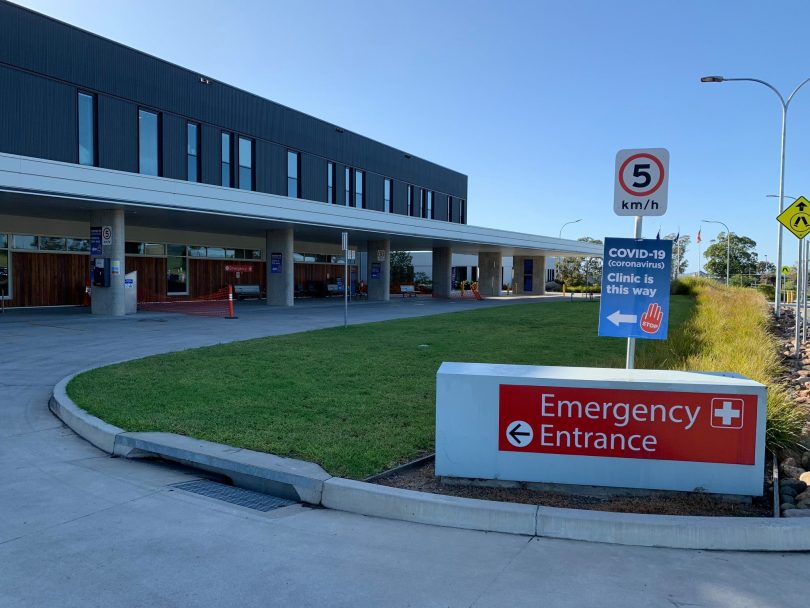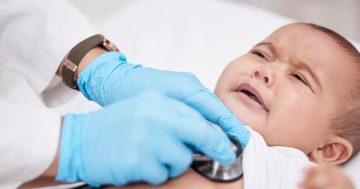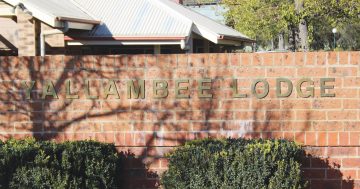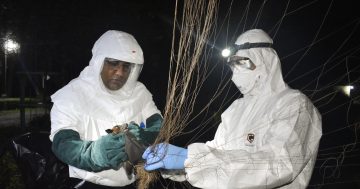
COVID-19 testing is taking place at the South East regional hospital in Bega. Photo: Facebook.
COVID-19 cases across southern NSW as a whole and the ACT have slowed substantially over the Easter break, although authorities caution that testing may have also slowed during the holiday period.
There have been no news cases in the Southern NSW Local Health District for more than a week, while Murrumbidgee Local Health District recorded only two new cases over the Easter weekend.
One case was recorded on Friday in the Cootamundra Gundagai Shire and one case was recorded in Albury.
The number of confirmed COVID-19 cases has also not risen in the South East for a week. Southern NSW Local Health District announced today there was no change in confirmed numbers.
There are 10 cases in the Eurobodalla Shire and nine in the Bega Valley, 10 in Goulburn Mulwaree and six in Queanbeyan among the 53 confirmed diagnoses. Tests are verified within the last 24 hours.
A total of 44 cases have been identified within the Murrumbidgee LHD, and Wagga is the only Shire with 10 diagnoses or more. Of the 44 cases region-wide, 25 have recovered, and four cases have been hospitalised. Up to 2528 people have been tested for the virus.
Diagnoses have also slowed dramatically in the ACT, where there are no new cases of COVID-19 today, just one new case on Monday and none on Saturday or Sunday.
But health authorities say it’s too soon to ease the social distancing pressure: Murrumbidgee LHD chief executive Jill Ludford told Region Media last week that one confirmed case was still being investigated in the region
“But we do have one person who has an unknown contact,” she said. “That’s really concerning, that means we need to test more”.
“If we test early we can isolate close contacts who may not know they have COVID and that reduces the spread across the community. We know it’s tough in isolation at home, but please continue not to gather in public”.
The most common symptoms of COVID-19 are fever, sore throat and dry cough. Symptoms will generally appear three to four days after exposure to the virus but can be up to 14 days later.
Members of the public are advised to minimise travel, increase personal awareness around hand hygiene and practice social distancing.
Anyone who believes they have may have contracted the COVID-19 virus (ie returned travellers, or those who have come in contact with a confirmed case and are showing symptoms: fever, sore throat, dry cough and shortness of breath) are advised in the first instance to:
- Call the free-call coronavirus hotline 1800 022 222 and receive advice on the best course of action depending on your symptoms and risks. Medical staff will direct people to the nearest hospital or respiratory clinic, or advise them to stay home and self-monitor, or contact their GP, or
- Contact your GP to arrange an appointment (let GP practice know in advance if you have symptoms) or the Southern NSWLHD Central Intake Service – 1800 999 880 (option 1) before attending
- Call the Murrumbidgee COVID-19 Hotline on 1800 831 099 for assessment (7:00 am – 11:00 pm)










